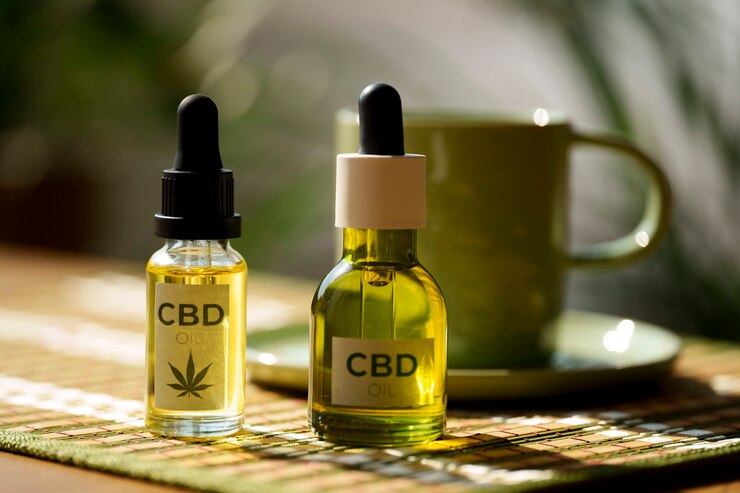CBD oil, derived from the cannabis plant, has become a popular wellness product in recent years. However, with so much information (and sometimes misinformation) circulating online, it can be challenging to understand what CBD oil is, how it works, and whether it’s right for you.
This blog aims to provide a comprehensive overview of CBD oil, delving into its origins, potential benefits, and important considerations before trying it.
What is CBD Oil?
CBD (cannabidiol) is one of over 100 chemical compounds, called cannabinoids, found in the cannabis plant. Unlike its more well-known cousin, THC (tetrahydrocannabinol), CBD is non-psychoactive, meaning it doesn’t produce the “high” associated with marijuana use.
CBD oil is typically extracted from the hemp plant, a variety of cannabis with naturally low THC levels (usually below 0.3%). This extract is then diluted with a carrier oil, such as coconut or hemp seed oil, to create a consumable product.
How Does CBD Work?
The human body has an endocannabinoid system (ECS), a network of receptors that play a role in regulating various functions like sleep, mood, pain, and immune response. CBD interacts with the ECS, influencing its activity in various ways, though the exact mechanisms are still being explored.
Potential Benefits of CBD Oil
While research on CBD is ongoing and inconclusive in some areas, here are some potential benefits it may offer:
- Pain Relief: Studies suggest CBD may help manage chronic pain by reducing inflammation and interacting with pain receptors.
- Anxiety and Depression: Early research indicates CBD may be effective in reducing anxiety symptoms and improving sleep, potentially aiding individuals with depression.
- Seizure Control: Epidiolex, a purified form of CBD, is the first FDA-approved medication containing CBD for treating specific childhood epilepsy syndromes.
- Acne Management: Studies suggest CBD may have anti-inflammatory and sebum-regulating properties, potentially benefiting acne-prone individuals.
Important Considerations
- Limited Research: While preliminary research shows promise, more robust studies are needed to fully understand the long-term effects and efficacy of CBD for various conditions.
- Legality: Laws surrounding CBD vary by region. It’s crucial to check the legal status in your area before buying or using CBD products.
- Drug Interactions: CBD can interact with certain medications. Always consult your doctor before starting CBD, especially if you take other medications.
- Product Quality and Dosing: The lack of regulation in the CBD industry can lead to inconsistencies in product quality and dosage. Look for reputable brands with third-party lab testing to ensure the product contains the labeled amount of CBD and is free from contaminants.
- Side Effects: While generally well-tolerated, CBD can cause mild side effects like fatigue, diarrhea, and changes in appetite.
How to Use CBD Oil
CBD oil comes in various forms, including tinctures (dropped under the tongue), capsules, edibles, and topical applications. The best method for you depends on your personal preference and the intended purpose. Always start with a low dose and gradually increase as needed, following the manufacturer’s instructions.
Conclusion
CBD oil presents a potential avenue for natural wellness, but it’s crucial to approach it with caution and informed understanding. Remember, CBD is not a miracle cure and should not be used as a substitute for professional medical advice.
If you’re considering trying CBD oil, consult with your doctor to discuss potential benefits, risks, and interactions with any medications you take. They can help you determine if CBD oil aligns with your individual health goals and provide guidance on safe and responsible use.

